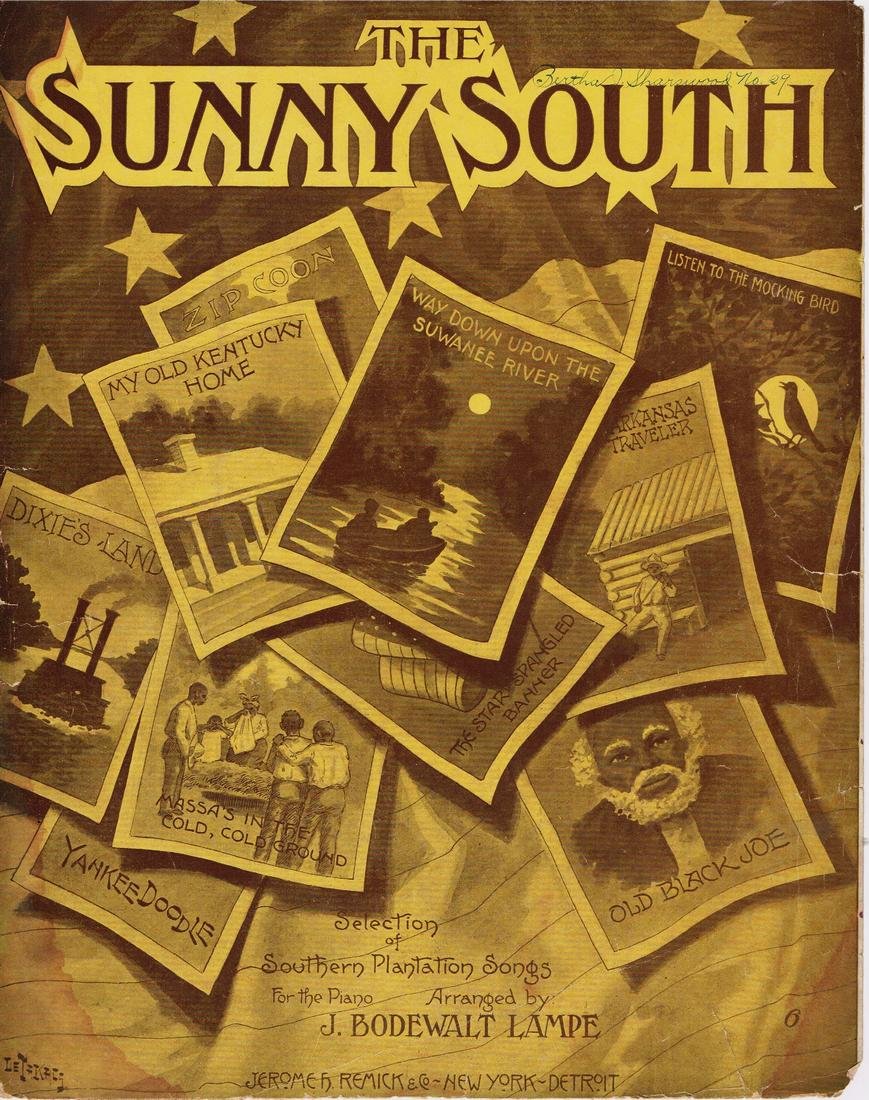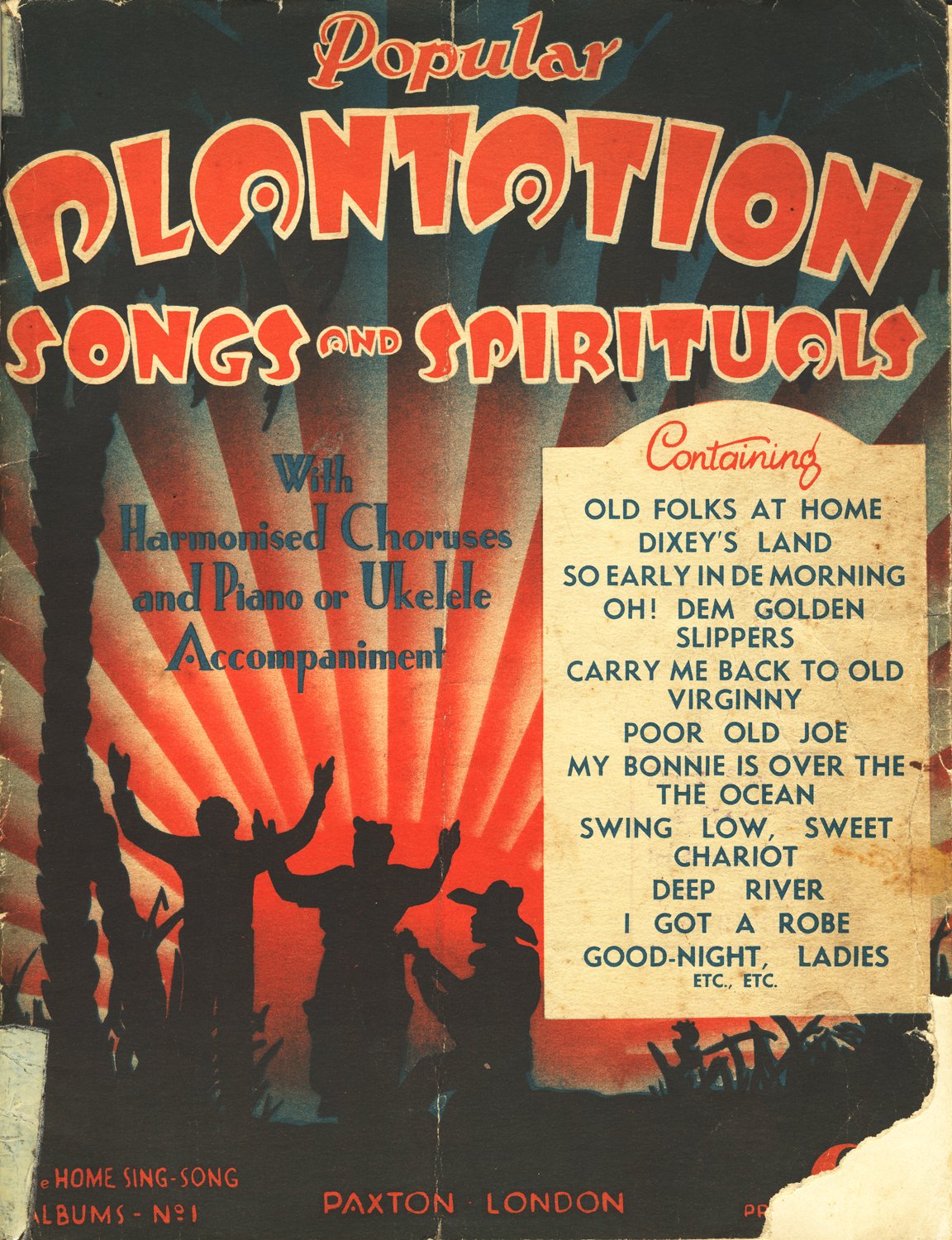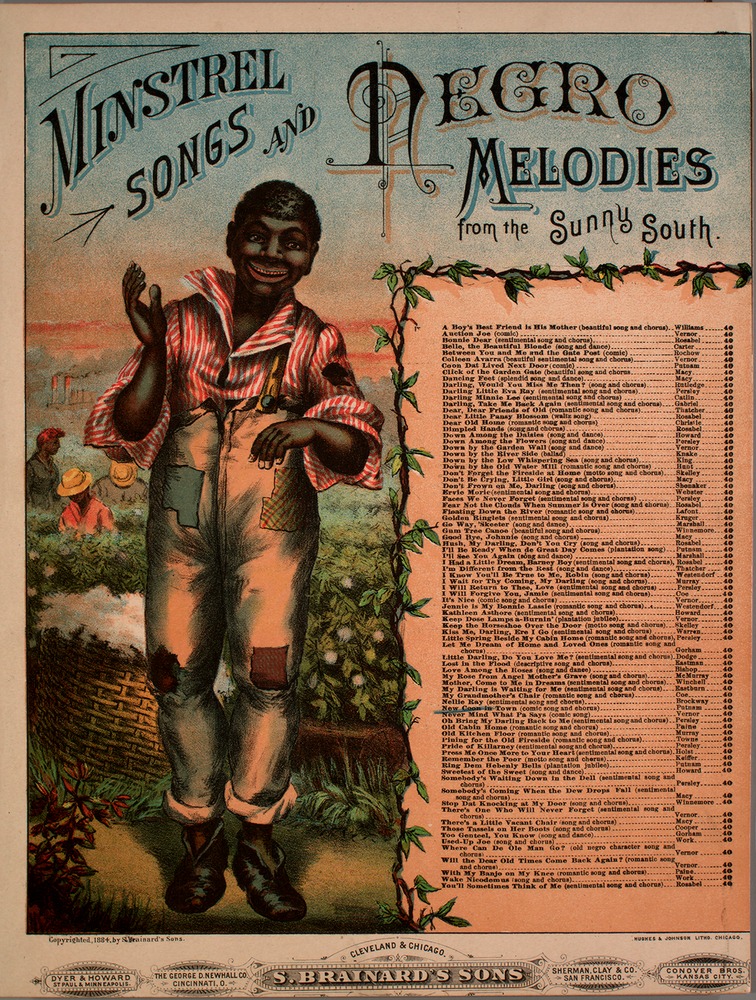PLANTATION SONGS
Una de las curiosidades acerca de las Plantation songs sin duda son la presentación de sus artísticas partituras , hechas con ilustraciones alegóricas , sus portadas eran verdaderamente obras de arte todas ellas. Os ofrecemos una pequeña muestra, así como un par de videos interesantes , uno de ellos audio con un medley representativo y el otro que nos habla del tema.
Info in : Plantation Songs
www.themeister.co.uk/dixie/plantation_songs.htm
Slave and plantation music was the first of five local American influences which fused into jazz around 1900.
Work songs were everywhere on the plantations - songs accompanied cane cutting, rice fanning, pulling, hammering, rowing, chopping - all these songs had repetitive rhythmic riffs, monotonous but an effective help for monotonous work. However songs were also heard after hours on the stoops, often lone voices, with strange rhythms and strums. Often melancholy but sometimes exciting ... depending on moods.
With the economic success of the plantations, the parties and celebrations of the owners often included musical contributions from some accomplished slave drummers and instrumentalists. There were always dance songs as well as work songs. Maybe the dance music involved fiddles and banjos and reels, jigs and gallops. And maybe a 'performance' of spirituals from the churches crept into the repertoire. Even on the plantations music was thriving and crossing the cultural divide. For sure slave music was encouraged; it helped work efficiency and social peace & tranquility.
Around 1850 plantation songs sung by the slaves had developed their individual character.
They were strongly influenced by African rhythm and led directly to the embryonic country blues. 'Lawdy, Capt'n, I's not a singin' I's a jes hollerin' for help'.
The music always had a strong ground beat, the rhythm of work, full of field hollers, forerunners of 'the break', and insistent call & response patterns, blue notes, falsetto voices with melisma.
During the Civil War, 'Slave Songs of the United States' was published by William Francis Allen, Charles Pickford Ware & Lucy McKim Garrison.
After the Civil War prison songs were identifiable as a development of the plantation songs.
--------------------------------------------------------------------------------------
Las canciones de trabajo estaban en todas partes en las plantaciones: las canciones iban acompañadas de corte de caña, de abanico de arroz, de jalar, de martillar, de remar, de picar; todas estas canciones tenían repetidos riffs rítmicos, monótonos pero una ayuda efectiva para el trabajo monótono. Sin embargo, también se escucharon canciones después de las horas en las paradas, a menudo voces solitarias, con ritmos y rastros extraños. A menudo melancólico pero a veces emocionante ... dependiendo de los estados de ánimo.
Con el éxito económico de las plantaciones, las fiestas y celebraciones de los propietarios a menudo incluían contribuciones musicales de algunos bateristas e instrumentistas esclavos. Siempre hubo canciones de baile así como canciones de trabajo. Tal vez la música de baile involucró violines y banjos y carretes, plantillas y galopes. Y tal vez una 'actuación' de espirituales de las iglesias se deslizó en el repertorio. Incluso en las plantaciones la música estaba prosperando y cruzando la división cultural. Seguramente se alentaba la música de esclavos; Ayudó a la eficiencia laboral y la paz y tranquilidad social.
Alrededor de 1850, las canciones de plantación cantadas por los esclavos habían desarrollado su carácter individual.
Fueron fuertemente influenciados por el ritmo africano y conducidos directamente al blues country embrionario. 'Lawdy, Capt'n, no soy un cantante' Soy un jes hollerin en busca de ayuda '.
La música siempre tuvo un ritmo fuerte, el ritmo del trabajo, lleno de gritos de campo, precursores de 'el descanso', y patrones insistentes de llamada y respuesta, blue notes , voces de falsete con melisma.
Durante la Guerra Civil, 'Canciones de esclavos de los Estados Unidos' fue publicada por William Francis Allen, Charles Pickford Ware y Lucy McKim Garrison.
Después de la Guerra Civil, las canciones de la prisión fueron identificables como un desarrollo de las canciones de plantación.

PBS Buy the DVD: http://www.shoppbs.org/entry.point?en... for more info: http://www.pbs.org/historydetectives. Watch the full segment from the History Detectives Special celebrating African American contributions to music. The president of the Mayme A. Clayton Library & Museum in Culver City, California, recently discovered an unusual book in his late mother's extraordinary collection of African-American artifacts. The small, cloth-bound book, titled Slave Songs of the United States, has a publication date of 1867 and contains a collection of 136 plantation songs. Could this be the first book of African-American spirituals ever published? HISTORY DETECTIVES host Wes Cowan visits a music historian in Los Angeles to explore the coded messages and the melodies that laid the foundation of modern blues, gospel and protest songs of future generations. He also meets with Washington, DC's Howard University Choir for a special concert of selections from Slave Songs sung in the traditional style of mid-1800s spirituals.
Exploring historical objects and the stories behind them, HISTORY DETECTIVES crisscrosses the country, delving into legends, folklore and personal histories to discover potentially extraordinary objects in everyday American homes, cities and small towns. Watch for the new season of History Detectives premiering June 2009. For more information, visit http://www.pbs.org/historydetectives.









Comments